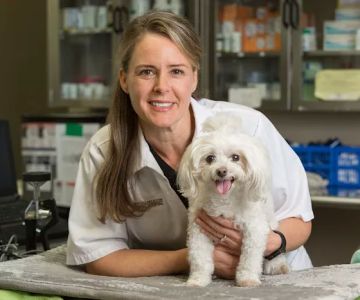What a Veterinarian Needs to Know: Essential Knowledge for Animal Care
- Core Skills Every Veterinarian Needs
- The Importance of Accurate Diagnosis
- Understanding Animal Behavior
- Education and Training for Veterinarians
- Real-Life Experiences in the Veterinary Field
1. Core Skills Every Veterinarian Needs
When I first considered becoming a veterinarian, I had no idea just how vast the knowledge base would be. There’s more to it than just knowing how to treat sick animals—veterinarians need a diverse skill set that ranges from technical medical expertise to strong communication and decision-making abilities. Over the years, I’ve realized that there are several core skills every veterinarian must develop:
- Medical Knowledge: The foundation of any veterinary career is a deep understanding of animal physiology, anatomy, and disease. Veterinarians need to diagnose conditions accurately and know the latest treatment options.
- Surgical Skills: Many veterinarians, especially those in practice with pets or large animals, must have excellent surgical skills. From spaying and neutering to more complex procedures, hands-on technical expertise is crucial.
- Communication Skills: As a veterinarian, communication is key. Being able to clearly explain diagnoses and treatment plans to pet owners, as well as communicating with veterinary technicians, is vital for effective care.
- Compassion and Empathy: Working with animals and their owners requires an immense amount of empathy. As a veterinarian, you need to understand the emotional aspect of pet care and help owners make the best decisions for their animals.
These core skills are just the beginning of what makes a successful veterinarian. In the next section, I'll dive deeper into the specific importance of accurate diagnosis in veterinary care.
2. The Importance of Accurate Diagnosis
One of the most critical tasks a veterinarian faces is diagnosing illnesses or injuries. I’ve seen firsthand how a quick, accurate diagnosis can be the difference between a successful recovery and a missed opportunity for treatment. A veterinarian needs to know how to recognize the subtle signs of illness, understand the animal's history, and run the right tests to get to the root of the problem.
For instance, I remember a case early in my career where a dog was brought in with symptoms that seemed minor—lethargy and lack of appetite. Through a thorough examination and some blood tests, we discovered that the dog was suffering from a severe infection. Early intervention and the right treatment saved the dog’s life, and the owner was incredibly grateful for the diagnosis. This experience reinforced for me the importance of being detail-oriented and patient when diagnosing patients.
Veterinarians must also keep up with the ever-evolving nature of diseases and treatments. I’ve personally found that continuing education—whether it’s attending seminars, reading recent studies, or discussing cases with colleagues—helps me stay sharp and aware of the latest trends in veterinary medicine.

7211 Vanderbilt Beach Rd STE 13, Naples, FL 34119, USA
See Details3. Understanding Animal Behavior
In addition to medical knowledge, understanding animal behavior is another essential skill every veterinarian needs. Unlike humans, animals can’t verbally communicate their symptoms, so it's important to recognize signs of stress, pain, or anxiety in our patients. Over time, I’ve learned to interpret animal behavior through body language and vocalizations.
For example, one of the most common challenges veterinarians face is working with fearful or aggressive animals. I recall a time when I had to treat a cat who was extremely frightened of the veterinary clinic. It took time and patience, but by understanding feline body language, I was able to gain the cat’s trust and provide the necessary care. With dogs, recognizing signs of anxiety—like excessive barking or tail tucking—can help guide treatment, especially when dealing with behavioral problems or underlying medical issues.
Being able to communicate effectively with animals, even if they can’t speak, is a unique challenge in the veterinary field. This is why animal behavior training is critical for anyone in this profession. Understanding how animals react to certain situations helps ensure that they are treated in a manner that reduces stress and allows for better cooperation during medical procedures.
4. Education and Training for Veterinarians
Becoming a veterinarian requires years of education and hands-on experience. The journey typically starts with a bachelor’s degree in a science-related field, such as biology or animal science, followed by veterinary school, which takes four years to complete. During veterinary school, students learn everything from surgery techniques to the management of infectious diseases, in addition to gaining clinical experience by treating animals in teaching hospitals.
After completing their education, veterinarians must pass national and state exams to become licensed. As someone who went through this rigorous process, I can tell you that it’s both challenging and rewarding. Once licensed, many veterinarians choose to specialize in areas such as surgery, dermatology, or oncology, requiring additional training and certifications.
It’s also essential for veterinarians to continue learning throughout their careers. I regularly attend continuing education programs and workshops to stay updated on the latest advancements in veterinary care. Veterinary medicine is constantly evolving, so it's crucial to stay current on new treatments, technologies, and practices to provide the best care possible for animals.
5. Real-Life Stories from Veterinarians
To understand the true depth of what a veterinarian needs to know, it’s best to look at some real-life experiences. One of my most rewarding moments as a veterinarian came when I successfully treated a rescue dog that had been severely abused. The dog had multiple broken bones and was malnourished, but after months of careful rehabilitation and care, the dog was adopted into a loving home. It was a profound experience that reminded me of the positive impact that veterinary care can have on both animals and their owners.
Another experience that stands out was when I had to perform emergency surgery on a horse that had swallowed something it shouldn’t have. It was a delicate procedure, but with the right approach and a bit of luck, the horse made a full recovery. Cases like this reaffirmed for me the importance of veterinary knowledge, skill, and the ability to make quick decisions under pressure.
These stories, along with countless others, highlight the complexity and beauty of veterinary work. It's not just about diagnosing and treating; it’s about making a real difference in the lives of animals and their families. Veterinary care is both challenging and deeply fulfilling, offering the chance to work with incredible animals and play a key role in their well-being.










